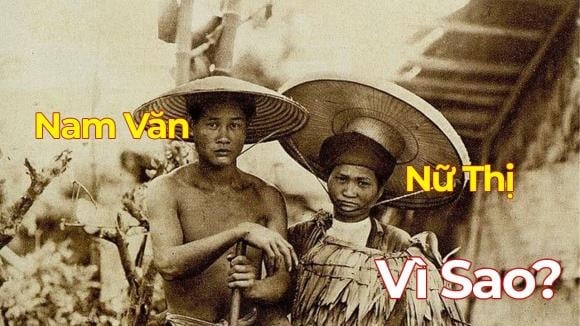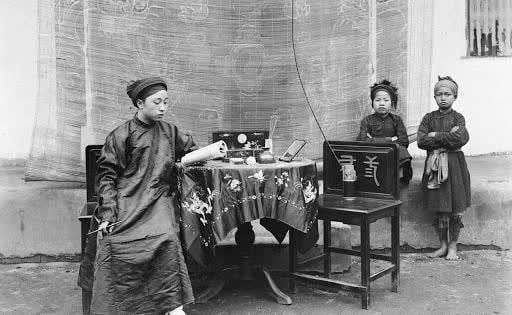The preference for the middle name “Văn” for boys:
In the ancient feudal society, boys had the opportunity to attend school and take exams to pursue a career in the civil service.
Therefore, many families chose the word “Văn,” which means culture and literature, as the middle name for their sons, wishing for their children to be intelligent and academically successful. Over time, “Văn” became a popular choice to express parents’ high aspirations for their boys.

The traditional use of “Thị” as a middle name for girls:
“Thị” originates from Sino-Vietnamese and was used to refer to married women. In the past, adding “Thị” to a girl’s name was a way to indicate gender, and this practice was influenced by Northern culture.

However, over time, many people misunderstood “Thị” to be simply a way to address females, and thus, it was commonly used in girls’ names without much thought.
Today, naming conventions are not as rigid as they once were. Modern parents often opt for more unique and personalized middle names for their children, which has led to a decrease in the popularity of “Văn” and “Thị.”
Why Did Consorts Need to Be Escorted After Bedding the Emperor?
The intrigue and mysteries of the imperial harem have long fascinated historians and enthusiasts alike. One such intrigue is the practice of consorts being escorted back to their quarters after an intimate encounter with the emperor. This was no mere courtesy, but a pivotal protocol within the confines of the forbidden city.
What’s Good for the Goose Is Good for the Gander
Everyone knows that the son-in-law of an emperor is called a ‘marquis’, but what about the emperor’s daughter-in-law? This intriguing question delves into the fascinating world of royal titles and the unique terminology that surrounds them. Unveiling the answer offers a glimpse into the rich cultural heritage and traditions associated with imperial families.






































